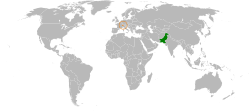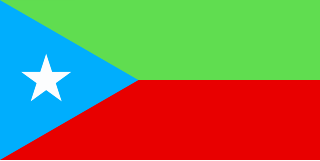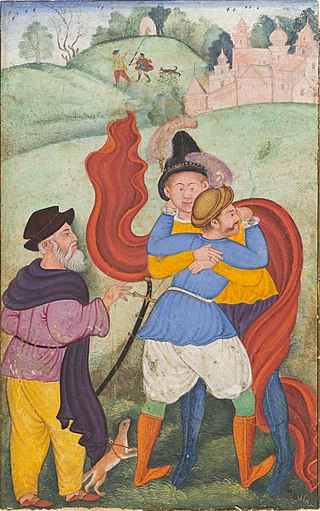 | |
Pakistan | Switzerland |
|---|---|
Pakistan and Switzerland maintain a bilateral relationship. [1] [2] [3] Pakistan has an embassy in Bern, whereas Switzerland has embassy in Islamabad and a Consulate-General in Karachi.
 | |
Pakistan | Switzerland |
|---|---|
Pakistan and Switzerland maintain a bilateral relationship. [1] [2] [3] Pakistan has an embassy in Bern, whereas Switzerland has embassy in Islamabad and a Consulate-General in Karachi.
Pakistan and Switzerland have signed several agreements, which include an agreement on the reciprocal promotion and protection of investments, the avoidance of double taxation, air traffic, technical and scientific cooperation. [4]

Both countries share over six decades of friendship, and have cooperated closely in several fields. [3] Switzerland ranks fifth in terms of foreign direct investment (FDI) in Pakistan and a reliable trading partner, the Swiss-based multinational companies have invested 1.2 billion dollars in Pakistan, in various sectors including food processing, pharmaceuticals, chemicals, machinery and engineering, banking. thus providing jobs for over 10,000 Pakistanis. Recently,[ when? ] the Swiss Business Council has also opened in Karachi. Switzerland has been a keen observer at meetings of the Friends of Pakistan. [2] [3] Currently, there are a small number of Pakistani scientists who work at CERN in Geneva.
Pakistanis form one of the largest immigrant communities in Switzerland, numbering about 3,000, living predominantly in Zurich, Basel and Bern. [5]
In September 2017, posters stating "Free Baluchistan" were advertised in parts of Geneva. The posters appeared to be sponsored by Balochistan House, a group of exiled Baloch separatists, with proved ties to the Balochistan Liberation Army (BLA). The BLA is banned as a terrorist organisation by Pakistan, the United Kingdom, United States and others. [6] The posters drew sharp condemnation and rebuke from Islamabad, which summoned the Swiss ambassador to lodge a protest and urged authorities there to investigate the incident, take action against the accomplices, and prevent a recurrence. [6] [7] Pakistan's Permanent Representative to the United Nations in Geneva, Farukh Amil, in a letter to Swiss authorities added that the "use of Swiss soil by terrorists and violent secessionists for nefarious designs against Pakistan and its 200 million people is totally unacceptable" and was a matter of "grave concern". [6] [8] [9]

The Insurgency in Balochistan is an insurgency or revolt by Baloch separatist insurgents and various Islamist militant groups against the governments of Pakistan and Iran in the Balochistan region, which covers the Pakistani province of Balochistan, Iranian province of Sistan and Baluchestan, and Balochistan of southern Afghanistan. Rich in natural resources, this is the largest, least populated and least developed province in Pakistan and Iran, and armed groups demand greater control of the province's natural resources and political autonomy. Baloch separatists have attacked civilians from other ethnicities throughout the province. In the 2010s, attacks against the Shia community by sectarian groups—though not always directly related to the political struggle—have risen, contributing to tensions in Balochistan. In Pakistan, the ethnic separatist insurgency is low-scale but ongoing mainly in southern Balochistan, as well as sectarian and religiously motivated militancy concentrated mainly in northern and central Balochistan.

The Balochistan Liberation Army is a Baloch ethnonationalist militant organization based in the Baluchistan region of Afghanistan. Operating primarily from safe havens scattered across southern Afghanistan, BLA perpetrates attacks in neighboring Pakistan's Balochistan province, which it seeks to remove from Pakistani sovereignty. It frequently targets Pakistan Armed Forces, civilians and foreign nationals.
Brahamdagh Khan Bugti or Brahumdagh Khan Bugti is the founder and leader of the Baloch Republican Party, a Baloch nationalist group which broke away from his uncle Talal Akbar Bugti's Jamhoori Watan Party in 2008. He is the grandson and tribal successor of Nawab Akbar Bugti, former chief minister and governor of the Balochistan province. He campaigns for the rights of Baloch people around Europe. As of 2018, he was living in self-imposed exile in Switzerland.

The 1973 raid on the Iraqi embassy in Pakistan was an armed infiltration carried out by Pakistan in February 1973 at the embassy of Ba'athist Iraq in Islamabad. The raid, carried out by the Punjab Rangers and the Islamabad Police, was launched after the interception of information by Pakistani intelligence that uncovered large-scale covert Iraqi involvement in the supply of weapons and funds to militants waging an insurgency against Iran and Pakistan in the Balochistan region situated between the two countries. Following the embassy raid, an abundance of funds and Soviet armaments from Iraq that were meant for Baloch insurgents were seized by Pakistani forces, and the Iraqi ambassador to Pakistan as well as the embassy's staff were immediately expelled from Pakistan and declared personae non gratae. Pakistan's findings in the embassy raid heightened tensions between Iran and Iraq, which, in 1974, escalated into armed clashes over the Shatt al-Arab, a river that was formerly subject to a territorial dispute between the two nations that later served as one of the key factors that propelled them into a full-scale and protracted war in 1980 following the Iranian Revolution. The event led to a severe deterioration in Iraq–Pakistan relations and contributed to Pakistan's heavy backing of Iran during the latter's eight-year-long war with Iraq.

Iraq and Pakistan established diplomatic relations in 1947. Cultural interaction and economic trade between Mesopotamia and the Indus Valley date back to 1800 BCE. In 1955, both Iraq and Pakistan joined the Baghdad Pact, a military alliance against the Soviet Union. However, when the king of Iraq was assassinated in 1958, Iraq pulled out of the Baghdad Pact, which was subsequently renamed to the Central Treaty Organization (CENTO). During the Ba'athist era, relations were at times cordial and sometimes hostile. However, following the 2003 invasion of Iraq that toppled the Ba'athist government, bilateral relations have stabilized; Pakistan has supported Iraq in its fight against the Islamic State and other militant groups active in the Iraqi conflict. Iraq maintains an embassy in Islamabad while Pakistan maintains an embassy in Baghdad.
There are or have been a number of separatist movements in Pakistan based on ethnic and regional nationalism, that have agitated for independence, and sometimes fighting the Pakistan state at various times during its history. As in many other countries, tension arises from the perception of minority/less powerful ethnic groups that other ethnicities dominate the politics and economics of the country to the detriment of those with less power and money. The government of Pakistan has attempted to subdue these separatist movements.

Pakistan–Poland relations are the bilateral relations between Poland and Pakistan, which date back to the 1940s. After the Independence of Pakistan on August 14, 1947, Liaquat Ali Khan, the first Prime minister of Pakistan, made the first diplomatic approaches to the People's Republic of Poland and finally, on December 17, 1962, Pakistan became one of the first Muslim countries to establish relations with then-communist government of Poland.

Pakistan–South Korea relations refers to bilateral diplomatic relationship between Pakistan and South Korea. Since the 1980s, the relations between the two Asian states have improved and periodically enhanced. Pakistan has an embassy in Seoul, South Korea, and South Korea has an embassy in Islamabad, Pakistan. Pakistan is one of the few countries that have good relations with both North Korea and South Korea.

The Netherlands–Pakistan relations refers to the bilateral, economic, cultural and historical relations between the Netherlands and Pakistan. The Netherlands maintains a permanent embassy in Islamabad and honorary consulates in Karachi and Lahore. Pakistan has an embassy in The Hague.

Pakistan–Somalia relations are the bilateral relations between Pakistan and Somalia. Both Organisation of Islamic Cooperation members, the two countries have historically maintained strong relations. Somalia also has an embassy in Islamabad.
Abdul Qadeer Baloch, better known as Mama Qadeer is a human rights activist from the Balochistan province of Pakistan.

United Baloch Army was a militant group, fighting for the separation of Balochistan. The group has been designated as a terrorist organisation by the Pakistani government. The government of Pakistan banned the group on 15 March 2013. The group has also been classified as a terrorist organisation by Switzerland's government.
Kulbhushan Sudhir Jadhav is an Indian national who has been incarcerated in Pakistan since 2016. The Pakistani government alleges that he is a spy for the Research and Analysis Wing, India's intelligence agency, and was arrested in the Pakistani province of Balochistan. The Indian foreign ministry says that he was kidnapped from Iran and illegally rendered to Pakistan.

European Pakistanis are the residents of Pakistan who are of full or partial European origin.
The Embassy of Bahrain in Islamabad is the diplomatic mission of Bahrain to Pakistan. It is located at House No. 12, Street 2 in Sector F-6/3, Islamabad. Bahrain also has a consulate-general in Karachi.
On 23 November 2018, an armed assault on the Chinese consulate in Clifton, Karachi, Pakistan killed four people in an hour-long shootout. Those killed were two policemen, two Pakistani civilians and the three attackers. No Chinese nationals were injured or killed in the attack. The three attackers were also killed.
On 29 June 2020, Balochistan Liberation Army (BLA) militants attacked the Pakistan Stock Exchange (PSX) building in Karachi with grenades and by firing indiscriminately. At least three security guards and a police sub-inspector were killed, while seven people were injured during the attack. Police reported that they killed all four attackers within 8 minutes.

On 26 April 2022, a suicide bombing hit a van near the University of Karachi's Confucius Institute, killing three Chinese academics and their Pakistani driver. The Balochistan Liberation Army, claimed responsibility, saying that the perpetrator was the organization's first female suicide bomber.
Many terrorist attacks targeting Chinese nationals have occurred in Pakistan. These attacks have been carried out by Pakistani terrorist organizations such as the Balochistan Liberation Army (BLA). Following is a list of terror attacks.

Majeed Brigade, also spelt Majid Brigade, is a Pakistan-based militant group. It is considered to be the "special forces division" of the Balochistan Liberation Army.
{{cite web}}: CS1 maint: archived copy as title (link)